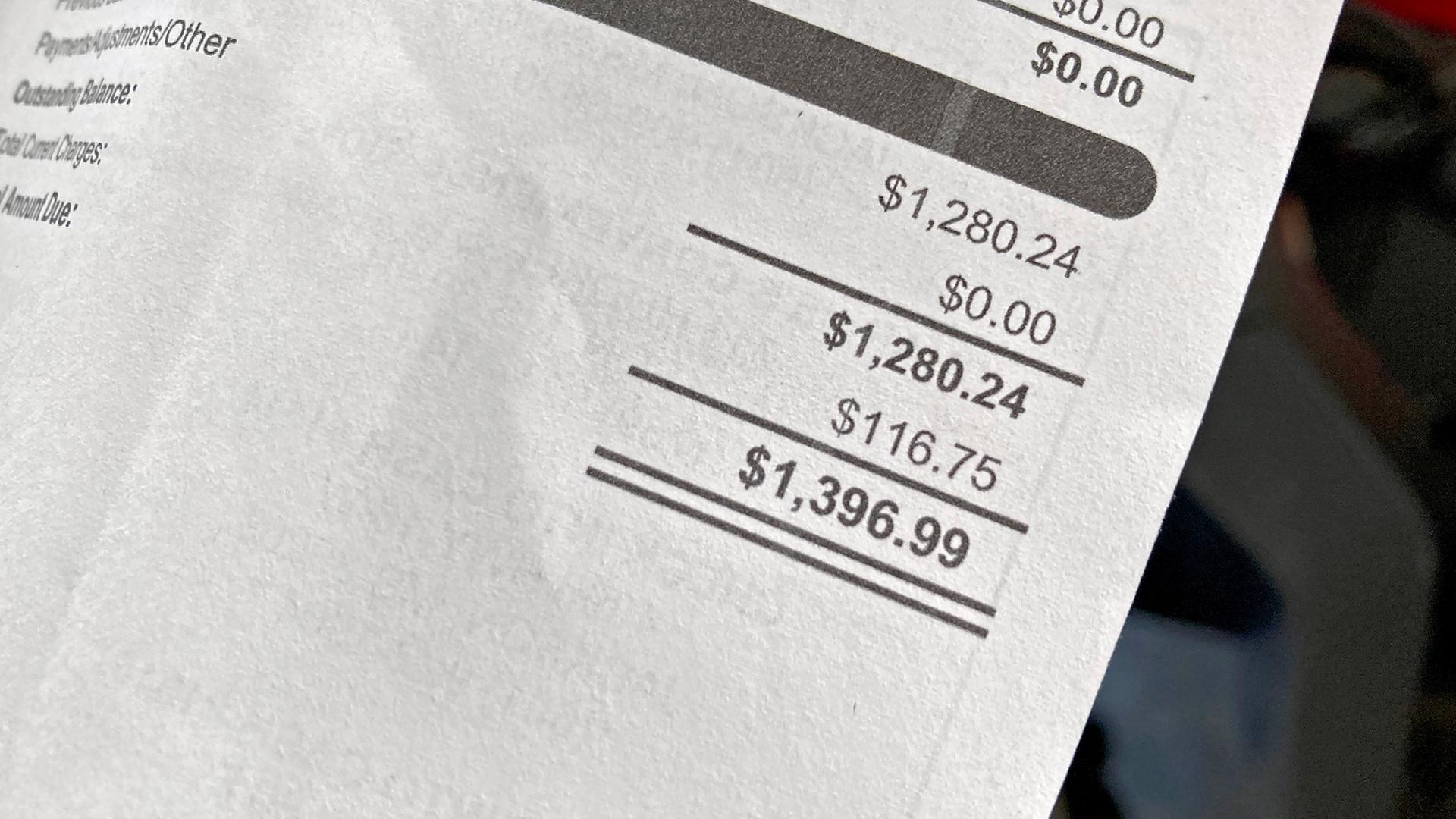It started as a simple idea to help low-income residents in Jackson, Mississippi, pay less for their water bills with as little red tape as possible.
Now, it’s led to federal agencies threatening to cut off all of Mississippi from food stamps.

It started as a simple idea to help low-income residents in Jackson, Mississippi, pay less for their water bills with as little red tape as possible.
Now, it’s led to federal agencies threatening to cut off all of Mississippi from food stamps.

Gulf States Newsroom
A plan to fix Jackson's water system could cost all of Mississippi its food stamps
In February, the U.S. Department of Justice and Department of Agriculture said JXN Water’s plan to automatically give a roughly $30 discount to everyone who receives SNAP, better known as food stamps, violates the privacy of people who receive the benefits. If the utility went through with the plan, the federal agencies threatened to remove the state’s Supplemental Nutrition Assistance Program access.
Nearly 400,00 people in the state rely on SNAP to help pay their monthly grocery bills. The danger of losing one of the most relied-upon welfare programs in the state with the highest poverty rate has caused the Mississippi attorney general to publicly support the federal agencies’ argument against the discount plan.
All the while, JXN Water, the private water utility created to fix and run the city’s broken water system, maintains this is ultimately the best way to help the most low-income customers afford their water bills while still raising enough revenue to end the city’s long and messy history of water dysfunction.
For at least a decade, water bills in Jackson would often go missing, or simply be wrong. Seemingly, everyone in the city has a story of a surprise four-figure bill either showing up in their mailbox or a family member's.
Troubles with the water system hit national levels in 2022 when the city went nearly seven weeks without potable drinking water. A federal judge then assigned a third-party manager, Ted Henifin, to run and fix the system. To do that, he created JXN Water as the new private utility for the city.
That’s when he ran into the water world’s catch-22.
Water experts often say keeping clean water flowing requires raising rates for customers. Henifin argues that most people with a middle-class income can afford the kind of rate hike he added at the start of the year. JXN Water estimated a typical customer should owe about $11 more each month.
But for customers with little income, higher water bills would hit them the hardest. Other cities try to solve this by giving a discount based on income, but just a fraction of the customers eligible for the aid actually get it because of the often-difficult process of proving their income.
That’s why Henifin tied a roughly $30 water bill discount to SNAP. Those who receive the benefit have already undergone vetting to determine their need. Automatically giving them the discount means skipping the paralyzing bureaucracy plaguing other cities’ programs.
To make the discount automatic, JXN Water would need the records of who’s on SNAP, which led to the USDA’s and DOJ’s objections.
In court filings, the DOJ said giving this information to a private water utility would violate people’s privacy. It also said distribution of the records without the recipients’ consent could lead to a loss of trust and fewer people signing up for SNAP, as well as for the utility itself.
While the DOJ “acknowledges the good intentions” of JXN Water and its plan, it said it’s heard from Jackson residents who distrust the water provider, and giving it this information without recipients’ consent could lead to more suspicion.
Lawyers for the USDA also pointed out in a filing that many people who receive SNAP don’t get a water bill. Renters often have their water bills factored into their rent.
Recipients who are homeless and those staying in domestic violence shelters would also have their information handed over as part of the plan without benefit.
Ultimately, the USDA said if the Mississippi Department of Human Services gives these records to JXN Water, it could be disqualified from receiving SNAP funding. In other words, all of Mississippi would be cut off from SNAP.
Manny Teodoro, a professor of public affairs at the University of Wisconsin-Madison, believes the USDA’s threat is uncalled for. Teodoro wrote the blog post that inspired JXN Water’s SNAP plan.
“That’s a profoundly troubling threat,” Teodoro said. “The idea that a federal agency would cut off benefits to an entire state… is really disturbing.”
But Brooke Floyd, co-director of the JXN People’s Assembly, has serious concerns over a private utility knowing about an individual's government benefits. She worries that if a person's utility and SNAP records don’t match, they could lose SNAP access.
A $30 water bill discount is also not worth risking the state getting cut off from SNAP, she said.
“Not for families to risk losing access to food. That’s scary,” she said. “That’s very scary.

Floyd also doesn’t believe SNAP is a good way to determine who should get aid, because many Mississippians with low incomes don’t receive the benefit.
The USDA estimates that only 62% of people in Mississippi who qualify for SNAP benefits actually received them in 2020.
During a recent visit to the Calvary Christian Oak Forest Baptist Church food pantry in Jackson, only one person out of 11 waiting in line received SNAP. Some mentioned that they were caught in the system's bureaucracy, while others stated that their incomes were just above the qualifying limit or that the benefits they would have received were too insignificant to be worthwhile.
That’s the case for Howard Louis. As he waited in his gray Honda Accord to give his information to receive aid from the pantry, Louis said he’d only get $15 a month from SNAP, so he didn’t bother.
As for the water bill discount, he doesn’t think it’s right to tie it to SNAP, and he agreed that sharing who gets SNAP with JXN Water would betray people’s privacy.
The one person at the pantry who did support the discount, however, was also the only one who received SNAP.
Barbra Magee had no concerns about her status being shared and believes it should be public knowledge, anyway.
“It should’ve been a known fact,” Magee said. “It shouldn’t matter.”
She’s personally dealing with a $900 balance to JXN Water — one of several residents who said they’ve gotten large charges as the utility tries to hold people accountable for past bills they never received.
“[The $30 discount] would mean a lot, because my water bill is still high from the time it [increased] back in the Summer,” Magee said. “Mine’s still at $900. I ain’t got it down yet."
Henifin said in a previous interview that he believes the best way for his utility to help the most low-income people in Jackson is through the SNAP discount.
A federal judge, Henry Wingate, has taken his side and ordered the release of the records to the utility. Both the DOJ and Mississippi AG are appealing the ruling.
While that’s working through the courts, JXN Water customers can still get a discount. They just need to prove that they receive SNAP — essentially adding back the kind of bureaucracy this plan was designed to avoid.
This story was produced by the Gulf States Newsroom, a collaboration between Mississippi Public Broadcasting, WBHM in Alabama, WWNO and WRKF in Louisiana and NPR.